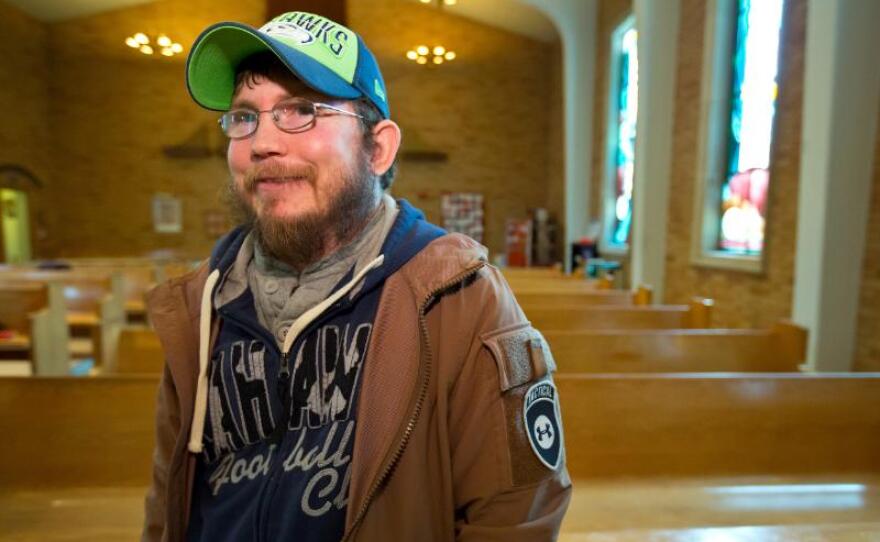There comes a time in people’s lives when an event changes everything in their world.
For Jerry White, that moment came when he was 20, while studying abroad in Israel. That’s when he lost his leg.
White was hiking with friends when he stepped on a landmine.
“Suddenly, I was hiking, and boom! I have no foot,” he said.
That catastrophic event sent him down a path to becoming a peace activist. He worked with the International Campaign to Ban Landmines, and became the co-recipient of the 1997 Nobel Peace Prize for his advocacy work.
White now works for the U.S. State Department, as the deputy assistant secretary of the Bureau of Conflict and Stabilization.
His own experience taught him how to move past trauma. And he’s learned other insights by interviewing thousands of survivors of war, rape and trauma through his organization, Survivor Corps.
And he shared those insights in his new book, "Getting Up When Life Knocks You Down: Five Steps to Overcoming a Life Crisis."
Step 1: Face Facts
"This is the toughest one,” said White. “And it can happen a little at a time or all at once."
For White, it was the realization that his leg "wasn't growing back. That I wasn't a starfish."
Step 2: Choose Life
This step differentiates those who remain victims, and those who do not — “those who could imagine a positive life, that my life is more than my body, perhaps, more than this date,” said White.
"If you make yourself about the date, you'll get stuck in that date. In fact, one of the number one signs of victimhood is living in the past,” he said.
Step 3: Reach Out
"You're tempted when you're bummed out and you're going through trauma to start to sink, to isolate, to go into a shell. But isolation will surely kill you,” said White. “And we need people. You can't survive alone. No one survives alone. It's up to survivors as well that they need to do the reach-out, and hopefully there are also people reaching out back."
Step 4: Get Moving
As White recovered in an Israeli hospital, a nurse was going to let him go to the cafeteria for the first time. He got into a wheelchair.
"And the nurse, she looked down at me and left,” he said.
White's advice: If you want to move, push.
"No one's going to do your recovery for you. No one's going to actually make you better. It's your life,” he said.
Step 5: Give Back
"Around the world, those who became super-survivors — they're missing all their legs and half their face and they barely have a job — why are they smiling? I want to drink whatever they're drinking. It's weird. They didn't get the memo that their life sucks,” said White.
"It turned out that the more those survivors who were thrivers, who were leaders in their community — they were givers, in small and big ways."
You don't have to be Nelson Mandela, says White.
"Some people do it in big ways. But I'm always interested in the ‘mini-delas.’ Who are the ones in our communities, day after day, who are in there? They are in the game,” he said.
---
White recently shared his survival tips with mental health workers and veterans at the American Lake VA Medical Center in Lakewood. He also spoke at Pacific Lutheran University as part of the 2014 Wang Center Symposium: Legacies of the Shoah.





